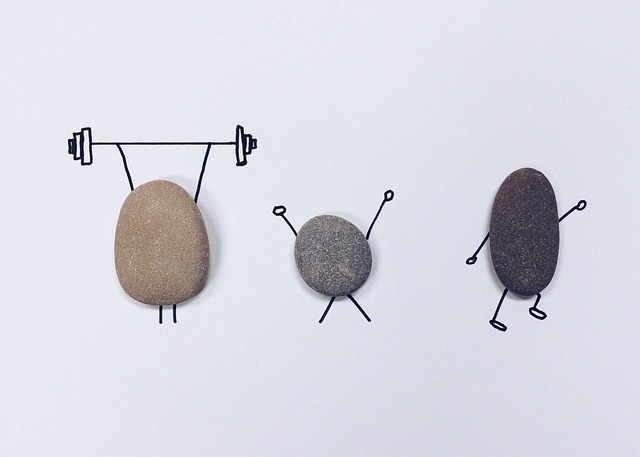To achieve a healthier work-life balance, begin by assessing your time allocation between professional and personal life using emotional wellness coaching techniques. Track daily routines, weekly commitments, and monthly milestones to identify areas for adjustment. This initial step helps set realistic boundaries and make conscious choices that integrate career advancement with emotional well-being, ultimately fostering a sustainable and fulfilling lifestyle through effective self-care strategies.
Struggling to find balance between work and life? This guide offers actionable steps to reclaim your time and well-being. Discover how to assess your current work-life balance, prioritize self-care for emotional wellness through exercise, mindfulness, and therapy, set firm boundaries, manage time effectively with proven techniques, and cultivate supportive relationships that strengthen both personal and professional lives. Learn these strategies and start living a more fulfilling, balanced life today, including exploring the benefit of emotional wellness coaching.
- Identify Your Current Balance
- – Assess your current work-life balance
- – Track time spent on work vs personal activities
- Prioritize Self-Care for Emotional Wellness
Identify Your Current Balance

To begin your journey towards a healthier work-life balance, start by taking stock of your current situation. Identify Your Current Balance involves assessing how much time and energy you’re allocating to both professional and personal life. Reflect on daily routines, weekly commitments, and monthly milestones. Are your evenings and weekends primarily dedicated to catching up on work or do they offer moments for relaxation and hobbies? This initial step is crucial as it provides a baseline for understanding areas that need adjustment.
Emotional wellness coaching can aid in this process by offering strategies to evaluate your priorities and set realistic boundaries. Through self-reflection guided by a coach, you can identify patterns that disrupt balance and make conscious choices to nurture both professional growth and personal well-being.
– Assess your current work-life balance

Many individuals struggle with defining and achieving a healthy work-life balance, often sacrificing personal time for professional goals. As an initial step, assess your current situation to understand your baseline. Reflect on how much time you dedicate to work daily or weekly, considering both official working hours and unpaid overtime. Simultaneously, examine your leisure activities and personal commitments, gauging the amount of time left for rest, hobbies, and quality time with loved ones. This evaluation forms a crucial foundation when seeking guidance from emotional wellness coaching services, designed to help you reclaim balance.
By quantifying your current work-life dynamics, you become more attuned to potential areas of improvement. Recognize if certain aspects of your routine are draining your energy or causing stress and anxiety. This awareness is the catalyst for making positive changes, ensuring a sustainable and fulfilling lifestyle that incorporates both professional success and emotional wellness.
– Track time spent on work vs personal activities

Maintaining a healthy work-life balance is key to enhancing your overall emotional wellness, and one effective strategy is by tracking how you spend your time. Many individuals often find themselves caught in a cycle of long work hours with little time for personal activities, leading to burnout and reduced satisfaction. By consciously monitoring your daily routines, you can gain valuable insights into areas where adjustments are needed.
Consider implementing a simple time-tracking system where you log the duration spent on work tasks versus personal pursuits. This practice allows you to identify if certain activities are consuming more time than necessary or if there’s room for improvement in delegating or streamlining responsibilities. With this awareness, emotional wellness coaching can then guide you in setting realistic boundaries and prioritizing self-care, ensuring a fulfilling and balanced lifestyle.
Prioritize Self-Care for Emotional Wellness

In today’s fast-paced world, prioritizing self-care is an essential aspect of maintaining emotional wellness. Incorporating practices that nurture your mental and physical health can significantly enhance your overall work-life balance. Emotional wellness coaching, for instance, offers valuable strategies to manage stress, boost resilience, and improve self-awareness—all crucial components for a fulfilling life. By setting aside dedicated time for activities like meditation, exercise, or engaging in hobbies, individuals can recharge and prevent burnout.
Self-care isn’t a luxury but a necessity. It empowers individuals to set boundaries, manage their energy levels, and maintain clarity in thought and action. Through emotional wellness coaching, one can learn to recognize signs of stress and make proactive changes to their routine. This proactivity ensures that personal well-being doesn’t take a back seat to professional commitments, fostering a healthier, more sustainable work environment.
Achieving a healthy work-life balance is an ongoing process that requires awareness and intentionality. By identifying your current state through assessment and tracking, you gain valuable insights to make informed changes. Prioritizing self-care is not just a luxury but a necessity for emotional wellness, as evidenced by the growing importance of emotional wellness coaching. Implementing these actionable steps will enable you to create a more balanced and fulfilling lifestyle, ensuring that both your professional and personal pursuits thrive in harmony.
